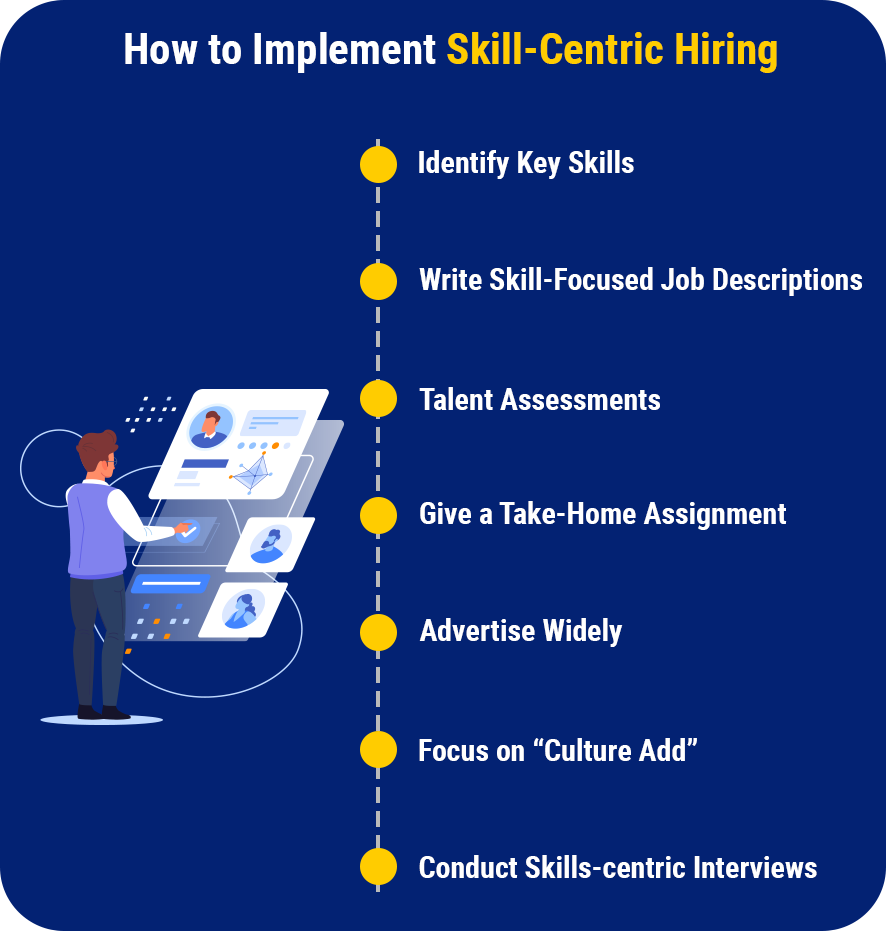Skill-Centric Hiring: Building the Agile Workforce of the Future
One thing that remains constant in any industry is the critical role of a strong, skilled workforce. For decades, hiring practices have revolved around qualifications on paper—degrees, certifications, and academics. Employers are now focusing more on Passion, creativity, and hands-on know-how rather than academic credentials. This shift is a positive move towards a more agile and effective workforce. Explore Why Skill-Centric Hiring and how to implement this effective way to find the best talent.
Traditional methods Vs Skill-Centric Hiring
Traditional hiring methods were often based on candidate’s academic credentials. This method worked well in a stable, predictable job market. As industries and technologies rapidly advance, employers and organizations increasingly prioritize innovation, specialized knowledge and adaptability, leading to the rise of skill-centric hiring
Skill-centric hiring is an approach that prioritizes a candidate’s abilities and practical experience over formal education and degrees. According to recent studies, employers who prioritize skills over degrees are 60% more likely to find the perfect fit for their teams. This clearly states the effectiveness of a strategy that aligns talent with the actual demands of the role.
How to Implement Skill-Centric Hiring

Identify Key Skills:
With job analysis pinpoint the essential hard and soft skills the role. Consider both technical competencies and interpersonal abilities.
Write Skill-Focused Job Descriptions:
Highlight core competencies and desired outcomes in your job descriptions. Focus on what a candidate can accomplish rather than their past experiences.
Talent Assessments:
Use skills-based assessments early in the hiring process to objectively evaluate a candidate’s abilities and fit for the role.
Give a Take-Home Assignment:
Assign a relevant task to let candidates demonstrate their skills and problem-solving abilities.
Advertise Widely:
Expand your talent search to include non-traditional candidates, career switchers, and self-taught individuals with the necessary skills.
Focus on “Culture Add”:
Target candidates with diverse skills and perspectives, prioritizing cultural fit based on shared values and a growth mindset.
Conduct Skills-centric Interviews:
Structure interviews to assess specific skills using behavioural questions and practical scenarios to evaluate real-world application abilities.
Conclusion:
Adopting a skill-centric approach isn’t without its challenges. It requires reevaluating hiring criteria, refining interview processes, and perhaps most importantly, cultivating a culture that values skill development and continuous learning. Skill based organizations are 107% more likely to place talent effectively. By prioritizing skills over degrees, companies not only find better-suited candidates but also foster a culture of agility, innovation, and inclusivity.
Together, let’s build positive workforce today, contact us @ ambconline.com.












